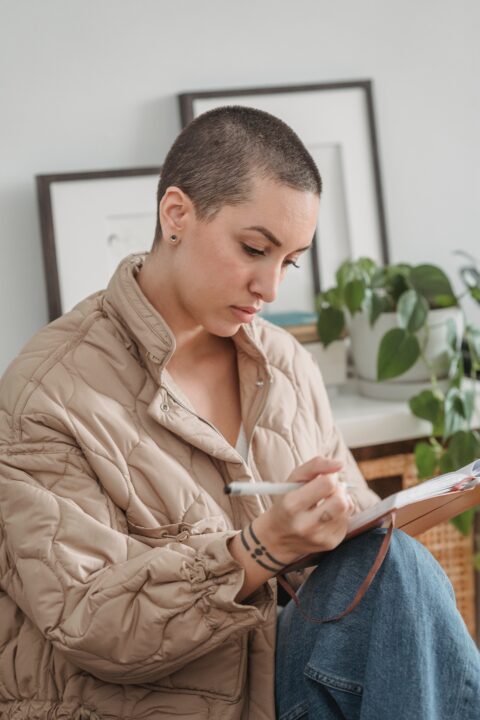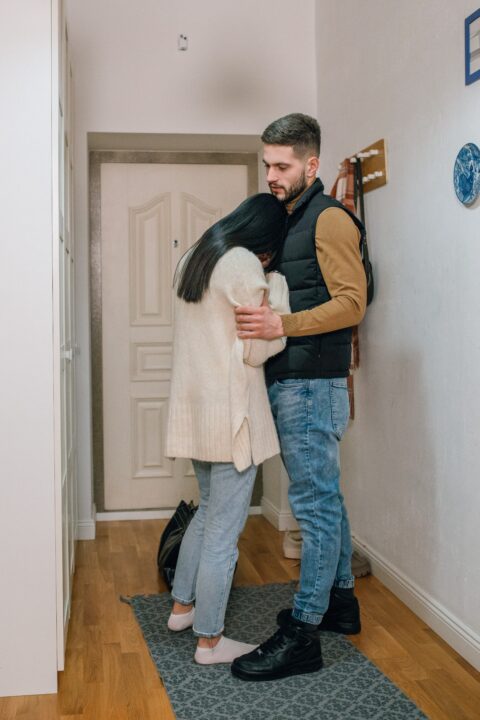We cannot talk about how to deal with separation anxiety without first trying to consider what separation anxiety itself is. When we talk of separation anxiety, it is a compound word formed from two different words, separation and anxiety.
To separate means to remove from something or to take away from something. Anxiety, according to the Oxford Dictionary, refers to concern or solitude respecting something or event, future or uncertain, which disturbs the mind and keeps it in a state of painful uneasiness.’
From the definitions of the two words given above, we can simply define separation anxiety as a state of painful uneasiness that is caused by disassociation from one’s parents, family, or loved ones. It is an anxiety that takes place due to separation from loved ones.
Separation anxiety happens in children and adults. Separation anxiety happens to children when they are separated from their parents, home, or people they are attached to, while separation anxiety in adults happens when they leave their loved ones.
It is not unusual for people to feel unhappy when moving away from their loved ones but sometimes this feeling can be more than we imagined, especially when people feel like their lives have been suddenly put on hold because of this separation from loved ones. One of the things that has been attributed to people with separation anxiety is fear. They experience fear because they do not want to leave their loved ones. These people are also possessive and jealous. They do not know how to handle being away from their loved ones. This is why in this article; we will look at how to deal with separation anxiety.
One of the reasons why people still allow themselves to live in fear because of separation anxiety is because they do not know how to deal with separation anxiety. However, we shall first consider the signs or characteristics of people dealing with separation anxiety
Characteristics of separation anxiety
- People with separation anxiety experience physical challenges such as anxiety, tingling in the limbs, or fast heartbeat.
- They are worried that something bad will happen to them that may take them away from their partner or loved ones.
- They do not function well socially and effectively when they are away from their homes or loved ones.
- People with separation anxiety usually experience so much distress and uneasiness when they are about to be separated from their loved ones or while going through separation
- They have difficulty being focused and decision-making, and this causes an imbalance in mood.
- You have negative thoughts that something bad is going to happen to your loved ones.
The above-listed points are some of the characteristics of separation anxiety but what are the things that cause separation anxiety in people?
Causes of Separation Anxiety
Background
Our background as humans plays a vital role in the way we respond and react to things that happen to us and how we treat others. Separation anxiety can be a result of a lack of parental attention during childhood due to family crises, divorce, or the death of parents.
Hereditary
It has been discovered that separation anxiety can be hereditary. It can be passed down from parents to their offspring. Children whose parents have separation anxiety tend to experience the same.
Another form of anxiety can lead to separation anxiety
People who have formerly been diagnosed with other anxiety issues, such as social anxiety, can have separation anxiety.
Past trauma
Past traumatic experiences such as abandonment or betrayal can cause people to have increased fear and insecurity issues with people around them. This is because they are constantly reminded of their past pain and may fear such a thing repeating itself. They do not want to go through the same pain and hurt they have experienced in the past and this may make them develop separation anxiety.
Now that we have examined some of the causes, we will consider how to deal with separation anxiety.
How to deal with separation anxiety
1. Accept that you have separation anxiety
The first way to deal with a problem is to first accept that there is one. What you need to do is help yourself by first knowing that you have separation anxiety.
If you constantly fear or are insecure about leaving other people to the point that it affects your decisions, you are making decisions in fear because you are afraid that something might happen.
The signs of separation anxiety have been mentioned above. These signs will guide you in determining if you have separation anxiety.
2. Discover the trigger
The first thing that you need to do after identifying that you have separation anxiety is for you to discover the trigger. Here, you need to reflect and ask questions about what makes you act the way you do. Why are you constantly insecure, scared and having negative thoughts that something bad will happen when the people you love leave? This has to do with you looking back to the past and figuring out why.
3. Fill your mind with positivity
When you have found out the triggers and the reasons why you have separation anxiety, When the negative thoughts come, do not allow your emotions to rule over your rational thoughts. You have to be intentional about replacing negative thoughts with positive ones in your mind.
4. Channel your energy into productive activities
Engaging in productive tasks can be very helpful in dealing with separation anxiety. When you keep your mind busy, it will be hard to entertain any negative thoughts. You can also try to engage in exercise or find something you love doing. It is one of the coping mechanisms used to deal with separation anxiety. There is a saying that an idle hand is the devil’s workshop.
5. Practice Journaling
-

george milton,pexels, 7014313.jpg
Another good way to deal with separation anxiety is by practicing journaling. You can document your thoughts or feelings in a journal. This helps you express your feelings, identify the problems and learn how to move forward. Writing down your thoughts can be a form of relief, as it can help you put down the negative thoughts that are associated with separation anxiety in writing instead of concealing them in your heart.
6. Spend some time alone
Spending some time alone gradually helps you learn how to enjoy your own company without having to depend on others. You should be able to do this because you need to understand that you cannot always live your life around the people you love, they won’t always be available. You need to learn how to spend some time alone so that you do not always develop separation anxiety when your loved ones are not close to being around you.
7. Build a strong social network
-

julia larson, pexels, 6113422.jpg
A strong social network can help deal with separation anxiety, as this will enable someone who has separation anxiety to get emotional support from friends and it will also provide someone with separation anxiety with company, which can help stop negative thoughts. It will also help with boredom and isolation, which usually cause separation anxiety.
8. Leave the things you cannot control
Stress and worry contribute to separation anxiety. Instead of thinking of things that you have no control over. It helps you reduce the anxiety that comes with separation. Sometimes, separation itself is something you have no control over.
You cannot tell people when they should stay or leave. The moment you understand that there are things that you have no control over as a person, it will help you stop stressing yourself out and getting anxious when people have to leave you.
9. Practice yoga
Yoga offers a lot of benefits to people with separation anxiety, as it is an exercise that allows for meditation and relaxation. Yoga will help them relieve stress and calm their nerves. Aside from this, yoga is a type of exercise and when we exercise, it boosts our mood.
10. Avoid prolonged goodbyes
-

alena darmel, pexels, 6642918.jpg
Another way to reduce separation anxiety is by keeping goodbyes short when they are about to depart from you. Do not have prolonged goodbyes during departure, as making them longer than necessary may increase your anxiety. So always keep your goodbyes short.
11. Practice self-care
Paying more attention to yourself and your well-being physically and emotionally, is very important, as it will help in managing stress that may arise from separation anxiety.
12 Seek the help and guidance of a professional
If you have separation anxiety, get help from professionals. Seek help from professionals such as psychologists, therapists, psychiatrists or counselors. Talk to them about how you feel and they will be able to provide you with more professional advice on how to deal with anxiety disorder and manage the situation.
In conclusion, it is okay to miss the people we love when they are away from us but we should not live in fear of losing them. We need to learn to think positively. People who constantly have negative thoughts from separation anxiety should always try to replace the negative thoughts with positive ones.






